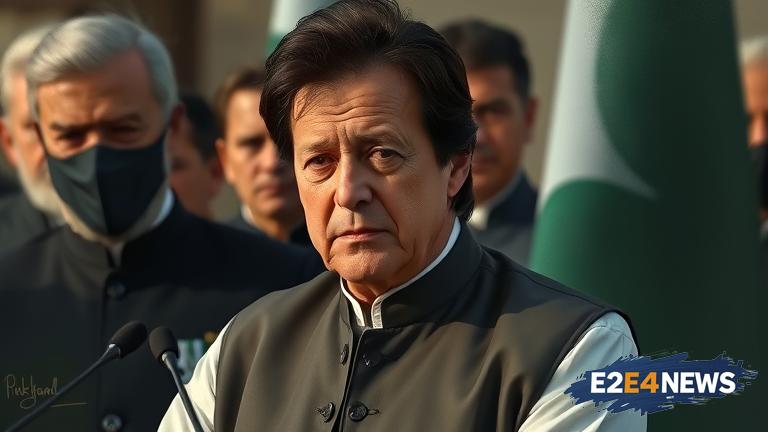The political landscape of Pakistan has taken a dramatic turn as Imran Khan, the former Prime Minister and leader of the Pakistan Tehreek-e-Insaf (PTI) party, has declared that he will not participate in any further talks with the current hybrid regime. This decision comes after months of tensions between Khan’s party and the government, which has been accused of being a puppet regime controlled by the military. Khan has been a vocal critic of the government, accusing it of being corrupt and incompetent. The hybrid regime, led by Asim Munir, has been in power since last year and has faced numerous challenges, including a struggling economy and rising inflation. Despite efforts to engage in dialogue, Khan has expressed his frustration with the government’s refusal to address the issues facing the country. He has also accused the government of trying to silence him and his party through intimidation and harassment. The PTI party has been holding protests and rallies across the country, demanding the resignation of the government and fresh elections. Khan’s decision to refuse talks with the government has been seen as a significant escalation of the political crisis in Pakistan. The government has responded by accusing Khan of being irresponsible and trying to destabilize the country. The situation has been further complicated by the involvement of the military, which has been accused of backing the hybrid regime. The international community has been watching the situation closely, with many countries expressing concern about the stability of Pakistan. The United States, in particular, has been keen to see a stable and democratic government in Pakistan, given its strategic importance in the region. The European Union has also called for calm and restraint, urging all parties to engage in dialogue. Despite the challenges, Khan remains popular among many Pakistanis, who see him as a champion of democracy and accountability. However, his critics accuse him of being power-hungry and divisive. The future of Pakistan remains uncertain, with many fearing that the country could be plunged into chaos and instability. The economy is already struggling, and the political crisis is likely to have a further negative impact. The government has announced plans to address the economic challenges, but it remains to be seen whether these will be effective. Khan’s party has also announced plans to launch a nationwide protest movement, which could further escalate the situation. As the situation continues to unfold, one thing is clear: the people of Pakistan deserve a stable and democratic government that can address their needs and concerns. The international community must also play its part in supporting Pakistan during this difficult time. The country has a long history of political instability, and it is essential that all parties work together to find a solution. The use of violence and intimidation must be rejected, and a peaceful and democratic resolution must be found. The people of Pakistan have the right to choose their leaders and to have a government that is accountable to them. It is essential that this right is respected and that the country is allowed to move forward in a peaceful and stable manner.





